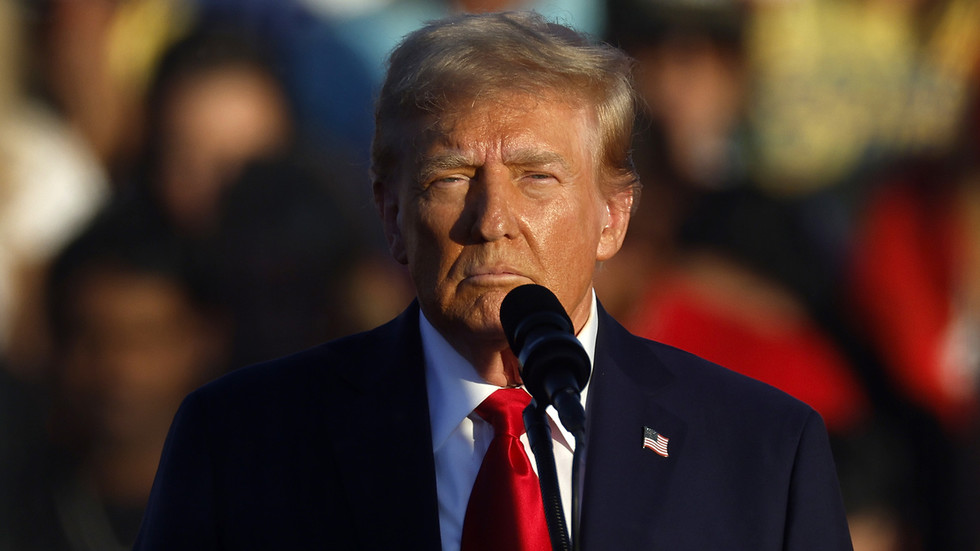The trial of former President Donald Trump in New York, which has dominated headlines in the United States and across the world, is entering its final stage after more than six weeks of proceedings.
On Wednesday, jurors began the process of making a decision about whether to find Trump guilty on 34 felony counts of falsifying business records. The outcome of the trial could have major implications for the US presidential election in November and affect the future of the country for years to come.
Never before has a US president, past or present, faced criminal charges. Prosecutors have argued that Trump fudged the business records to conceal a hush-money payment that could have hurt his chances in the 2016 elections.
But Trump and his defence team have denied any wrongdoing, instead framing the charges as politically motivated.
Media coverage of the hush-money case has described the process largely by using legal terms. But it is not always easy to understand judicial jargon like “indictment” and “arraignment”.
Below, Al Jazeera explains 12 basic legal terms that readers may frequently come across in the news and how they apply to the Trump trial.
Prosecutor: A government lawyer who presents a criminal case on behalf of the state
In most jurisdictions in the US, the lead prosecutor — also known as the district attorney (DA) — is directly elected. A state’s top prosecutor is known as the attorney general.
Part of a prosecutor’s job is to decide whether to file charges against a suspected criminal. If the case proceeds to court, the prosecutor must then argue in favour of the charges, by presenting evidence that a crime has been committed.
In the Trump trial, for instance, Manhattan DA Alvin Bragg assembled a team of prosecutors to argue Trump’s guilt. They include Joshua Steinglass, a veteran assistant DA who delivered a five-plus-hour closing argument on Tuesday.
Criminal charges: Accusations of a crime levelled by a prosecutor
Trump is facing 34 criminal charges in New York, each one representing a business record he is accused of falsifying.
At the heart of the case are payments totalling $130,000 made to adult film actress Stormy Daniels that prosecutors allege were concealed through the business records, which include cheques, invoices and accounting entries.
Prosecutors say Trump directed his former lawyer, Michael Cohen, to pay Daniels for her silence during the 2016 election season. Daniels claimed to have had an affair with Trump in 2006, something he denies.
After Cohen paid Daniels the hush money, prosecutors say Trump reimbursed the ex-lawyer and hid the charges by filing them under “legal expenses”, in order to cover his tracks. Trump ultimately won the 2016 presidential race.
Indictment: An official set of charges approved by a grand jury
Generally, to launch a criminal trial, there must be a formal written complaint outlining the charges: an indictment.
In cases like Trump’s, a randomly selected group of citizens come together to determine whether there is sufficient evidence — or probable cause — to bring a suspect to trial. This is called a “grand jury”. Unlike a trial jury, which weighs questions of guilt, a “grand jury” only considers whether there is enough evidence to warrant a trial.
Trump, for instance, was indicted in New York on March 30, 2023, becoming the first former president to face criminal charges. He has decried the decision as a “witch-hunt” — a position that has become his standard response to all of his legal woes.
Arraignment: A legal hearing where defendants are formally presented with the charges
An arraignment is often the first time a defendant — the person accused of a crime — has to appear in court.
The court reads the charges and notifies the defendant of his or her rights. In some cases, the defendant is also asked to enter a plea of guilty or not guilty.
Trump was arraigned on April 4, 2023. He first arrived at the Criminal Court in Lower Manhattan, where his fingerprints were taken. Then, he joined his lawyers in the courtroom, where the indictment was unsealed, or made public.
Trump pleaded not guilty at the arraignment. His first appearance in front of a judge saw crowds of protesters and counterprotesters gather outside the court.
Jurors: Randomly chosen citizens who assess the guilt of a defendant
In criminal cases in the US, courts generally require 12 jurors to be selected from the general population. These 12 jurors listen to the evidence that the prosecution and the defence team present during a trial, and then they decide what the outcome of the case should be.
Jury selection generally starts the trial period.
To arrive at 12 jurors in the Trump trial, nearly 300 prospective jurors were considered. The judge, prosecutors and defence lawyers were tasked with determining whether each candidate could be fair and impartial in the case — judging Trump by the letter of the law, rather than using personal motives.
Many of the prospective jurors were quickly dismissed after they indicated they could not be impartial. But within four days of the trial’s start, 12 jurors were selected, as well as six alternates who must also sit through the entire length of the trial.
The alternates step in if a juror cannot fulfil their duty. The 12 jurors from New York will decide the Trump case. Their decision must be unanimous for Trump to be found guilty.
Verdict: The jury’s decision after a trial
A verdict in the Trump case is expected in the coming days. Sometimes juries only need a few hours to arrive at a decision. In other cases, the process can take weeks.
Jury deliberations: When the jurors discuss the evidence and try to reach a verdict
Jury deliberations begin after the prosecution and defence finish presenting their arguments.
First, the judge gives the 12 jurors instructions about how to interpret the law. Then the jurors meet behind closed doors to weigh the evidence and make a decision about the defendant’s guilt.
The jury in the New York trial started deliberating on Wednesday. As part of their decision-making process, they sent multiple requests to the judge in Trump’s case to revisit evidence they heard in court. A court reporter is scheduled to read to them parts of the witness transcript on Thursday.
Convicted: Found guilty beyond reasonable doubt
If found guilty, Trump would become the first former president to be convicted of a crime. All 12 jurors have to agree in order for Trump to be found guilty on any one of the 34 charges. Each charge is weighed separately, meaning Trump could be convicted on all 34 counts, some of them or none at all.
Acquitted: Found not guilty
An acquittal would mean that the 12 members of the jury believe the prosecution has not proven beyond a reasonable doubt that Trump falsified business records in order to influence the 2016 election.
If the jury acquits Trump, the former president will likely argue that the case was politically motivated all along.
Just like with a guilty verdict, all 12 jury members would have to agree to acquit Trump on any of the 34 charges.
Hung jury: A jury that cannot agree on a unanimous decision
In the case of a hung jury, the judge declares a mistrial and sends the legal proceedings to square one. Prosecutors would then have to make a decision on whether to re-try the case or drop the charges.
Trump would benefit from a hung jury, which would bolster his argument that the charges were unwarranted. A mistrial would also likely force the prosecutors to re-try the case, if at all, after the November presidential election.
Sentence: Punishment handed by the judge in the case of a conviction
For most crimes, there are laws that set limits for a maximum sentence.
In Trump’s case, the maximum sentence is four years per felony count. But legal experts say it is unlikely that the former president would be sentenced to jail time if convicted: He would more likely face a fine or probation.
Appeal: Taking the case to a higher court to reverse a guilty verdict
Defendants can appeal the decisions against them, often by arguing that they did not receive a fair trial or had ineffective counsel.
An appeals court can revoke a conviction and send the case back to the lower court for a retrial. In some cases, prosecutors drop the charges or seek a lenient plea deal after a conviction is successfully appealed.
Trump would likely appeal a guilty verdict, which would buy him more time to challenge any conviction before the November presidential election.

 6 months ago
26
6 months ago
26









